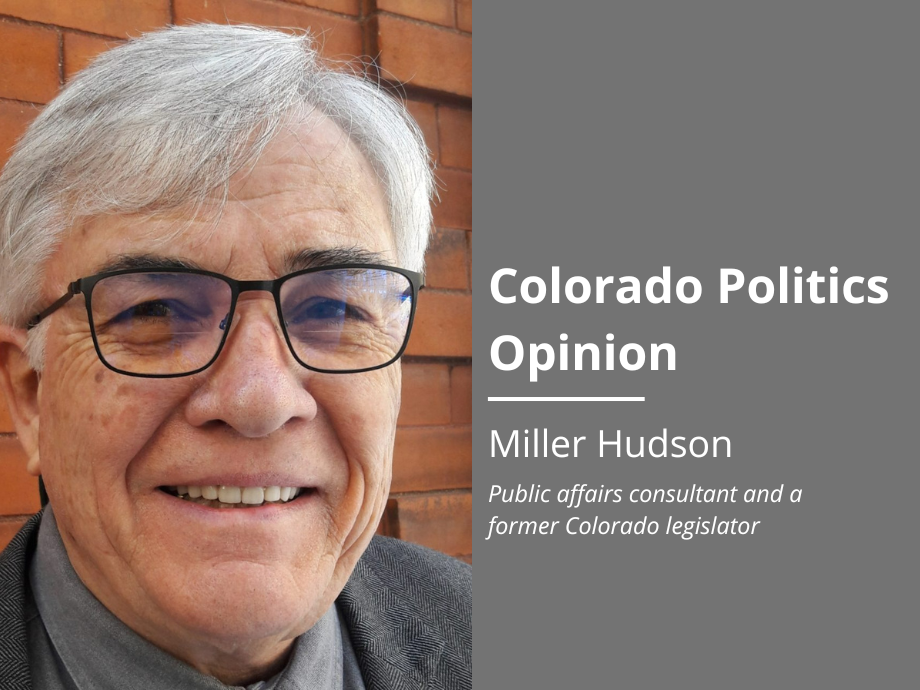Session’s legislative battles produce political lessons learned | HUDSON


Gov. Jared Polis joined Democratic House and Senate leaders at a press conference last week to slap one another on the back for a successful legislative session the day after legislators headed home not to return until next January. Speaking from behind a podium adorned with a “Real Results for Coloradans” slogan, journalists could still sniff the Republican opprobrium wafting through the Capitol following an acrimonious conclusion to the 2023 session. During my 40 years in Colorado politics, I’ve found myself on both sides of the term limit debate – occasionally supportive, more frequently opposed. The adverse consequences of term limits were apparent in both legislative failures and a shaky, albeit successful, effort to cobble together property tax relief in the final hours of a 120-day legislative calendar.
The little-recognized reality that an average legislator serves more years under our 1992 term limit amendment than they did prior to its adoption, persuades me regular elections may provide a superior term limiter than a revolving door. It’s long been recognized term limits have shifted the locus of institutional memory to legislative staff and lobbyists. Even more damaging has been the loss of experienced legislative leadership, which now rotates in both chambers with each new session.
Speaker Julie McCluskie expressed her personal disappointment that Republicans walked off the House floor, refusing to vote on the final TABOR refund and property tax bill that was only muscled through by restricting debate and refusing any but “friendly” Democratic amendments. Tuesday morning, no one recalled the occasion when Democrats walked out on Republican Senate President John Andrews as his majority approved a late night redistricting of Congressional seats following the 2000 census. Ultimately, the majority gets to write or re-write the rules.
Stay up to speed: Sign-up for daily opinion in your inbox Monday-Friday
Democrats had several real achievements to brag about: a substantial boost in education funding, meaningful new gun safety rules, assured access to abortion care, even a “right to repair” farm equipment for the state’s agriculture sector. Senate President Steve Fenberg was less than ingenuous when he blamed the late decision to run a property tax relief bill on the failure of county assessors to provide timely warnings regarding the impending severity of tax hikes. The approaching of higher assessments has been front-page news for more than a year. Either Fenberg doesn’t read his newspapers, discarding the business sections as Republicans do with the editorial and opinion pages.
He also took a turn bragging about legislation he introduced to “save people money on their utility bills.” This trope is growing ever more wearisome as minuscule savings achieved across government are trumpeted in the face of ever steeper costs. It was evident during the legislature’s “deep dive” that the special committee launched to examine Colorado utility rates had not a single member, including Fenberg himself, who actually understood the first thing about utility regulation. The savings claimed can be compared to finding a dime on the floor while purchasing a car and concluding this discovery makes all the difference in reaching a purchase decision.
The failure to approve affordable housing legislation, a bill which was permitted to languish in the Senate for three months without action, is even more perplexing. The shortage of affordably priced housing has been on the state’s political radar for even longer than the looming run-up in housing values. Nonetheless, the governor’s office appears to have cooked up its “priority legislation” in a closet where Colorado’s long history as a local-control state was forgotten. If all stakeholders were truly consulted, why were homebuilders sitting on their hands? And, if this is truly a matter of statewide concern, why were there carve-out exceptions for a handful of politically prickly counties?
In the closing hours of the session, the governor’s staff was reduced to begging for an “urban transit corridor only” rewrite that could then be brandished as a victory. Democrat Rachel Zenzinger and others stood in the way demanding the Senate adhere to its version and rejecting the House amendments that restored statewide control over upzoning. If Polis is to keep his long-shot hopes of emerging as a presidential alternative to Biden in 2024 alive, he will need to prove he can win legislative fights in Colorado. In 2024 Democrats will need to establish a coordinated agenda long before January.
McCluskie can reliably deliver majorities in the House, but at least three Democrats in the Senate – Mullica, Roberts and Priola, a recent Republican – have a pattern of voting with Republicans in committee. There is a temptation to cultivate a circle of insiders to develop policy. That is always a mistake. The more people in the room, the better the decisions that are made. Neither has either party developed a systematic mentoring of their own troops. Several years ago, my state representative was selected to chair a committee. When I asked whether she was meeting regularly with Democrats whose bills were scheduled for committee hearings, she asked quite innocently, “why should I do that?”
I pointed out she was a member of the governing leadership for her House majority, expected to shepherd, amend when required, and pass legislation sponsored by her colleagues. A committee chair is not an umpire, playing Pontius Pilate while considering bills, but a legislative manager responsible for reaching consensus. I pointed out it was also smart to do the same for Republican bills deserving of a fair hearing. Earning respect is just smart politics.
Miller Hudson is a public affairs consultant and a former Colorado legislator.













